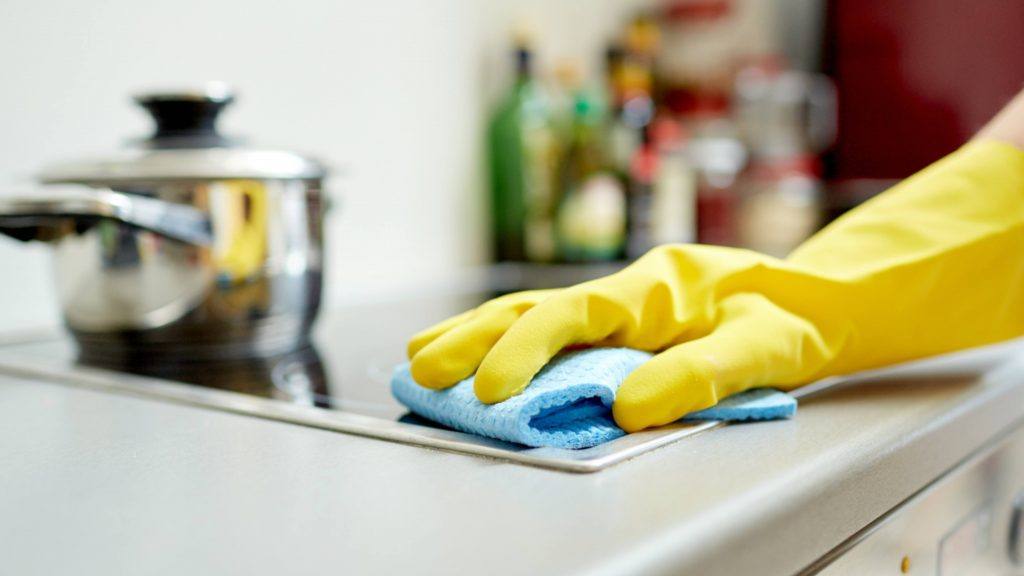-
Ways to fight coronavirus transmission at home

Used properly, most common household disinfectants will kill the virus that causes COVID-19.
_________________________________________
Health care providers and researchers are gaining a greater understanding about the coronavirus disease 2019 (COVID-19) outbreak and how the virus can spread. Public health messages emphasize the importance of frequent, thorough hand-washing and social distancing to slow the spread of COVID-19.
You can also take steps in your home to keep the virus from spreading. No special supplies are required. You likely already have what you need.
How is COVID-19 spread?
The virus that causes COVID-19 can be spread by contact with someone who has COVID-19, as well as contact with surfaces or objects that person has touched.
When someone with COVID-19 sneezes or coughs, respiratory droplets are released into the air. Droplets typically don't travel far — no more than 6 feet (about 2 meters). The virus may stay on surfaces from hours to days.
How can I prepare my home?
You can reduce potential spread of COVID-19 by cleaning and disinfecting frequently touched surfaces, such as tables, doorknobs, light switches, handles, desks, toilets, faucets and sinks. Do this daily if someone in your home has COVID-19.
Start by putting on gloves before cleaning and disinfecting — preferably disposable gloves, so you can throw them away immediately after you're done. If you only have reusable gloves, don't use them for any other purposes. Thoroughly wash your hands after removing your gloves.
Cleaning with soap and water removes dirt and lowers the number of germs on surfaces. Once surfaces are clean, you can apply disinfectant to knock out any germs that are left.
What disinfectants kill COVID-19?
The U.S. Environmental Protection Agency (EPA) has a list of disinfectants for use against COVID-19. Although these products haven't been tested against this specific virus, they're known to work against other, harder-to-kill viruses.
Look for products with active ingredients such as ethanol, hydrogen peroxide or quaternary ammonium. In the U.S., check labels for EPA registration numbers.
Read and follow product instructions, including what precautions to take when using the product. Many disinfectants need to remain on surfaces for some time to be effective. This is called the contact time. Check the label for the specifics. Also make sure you have good airflow in the room when you're using any type of disinfectant.
Does bleach work against COVID-19?
Yes. You can make a disinfecting solution by combining 4 teaspoons (about 20 milliliters) of household bleach and 1 quart (slightly less than 1 liter) of water. Read and follow instructions and precautions. For example, wear gloves and make sure there's good airflow in the room. Don't mix bleach with ammonia or any other cleanser — the combination could produce toxic fumes.
How can I disinfect phones and other electronics?
Follow manufacturers' instructions for cleaning and disinfecting. Otherwise, you can clean cellphones with disinfecting wipes that are 70% alcohol. Wipe the face of the phone and along the sides and back where you hold it. Let it air dry. The same goes for computers, laptops, tablets and remote controls. Wash your hands thoroughly when you're done.
Information in this post was accurate at the time of its posting. Due to the fluid nature of the COVID-19 pandemic, scientific understanding along with guidelines and recommendations may have changed since the original publication date.
Check the Centers for Disease Control and Prevention website for additional updates on COVID-19. For more information and all your COVID-19 coverage, go to the Mayo Clinic News Network and mayoclinic.org.







